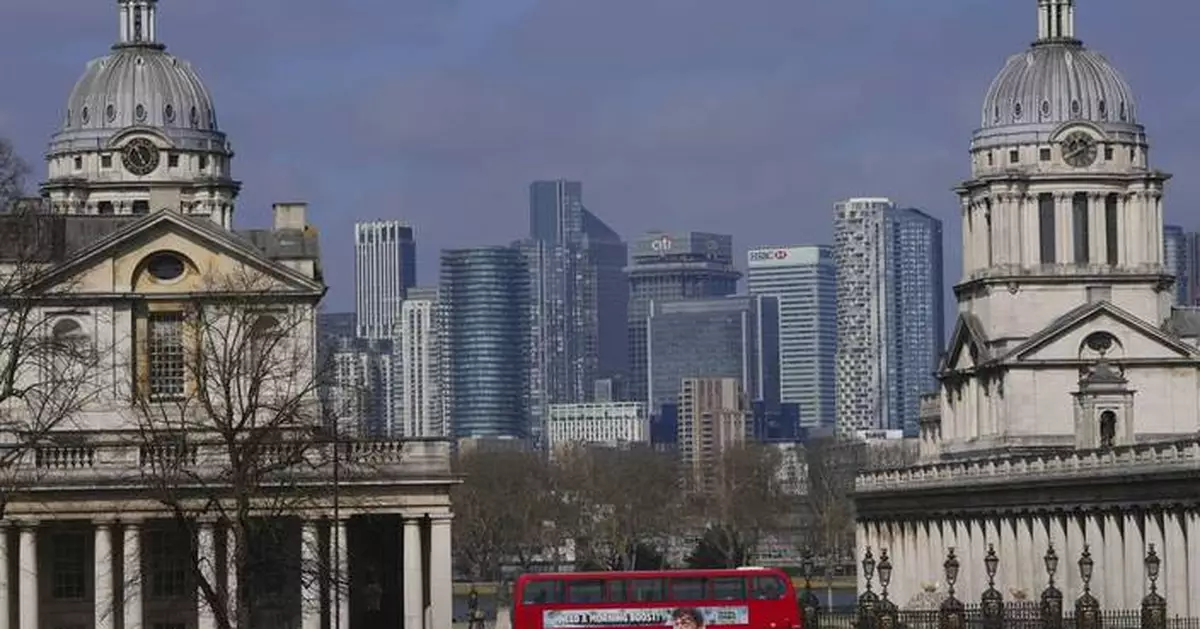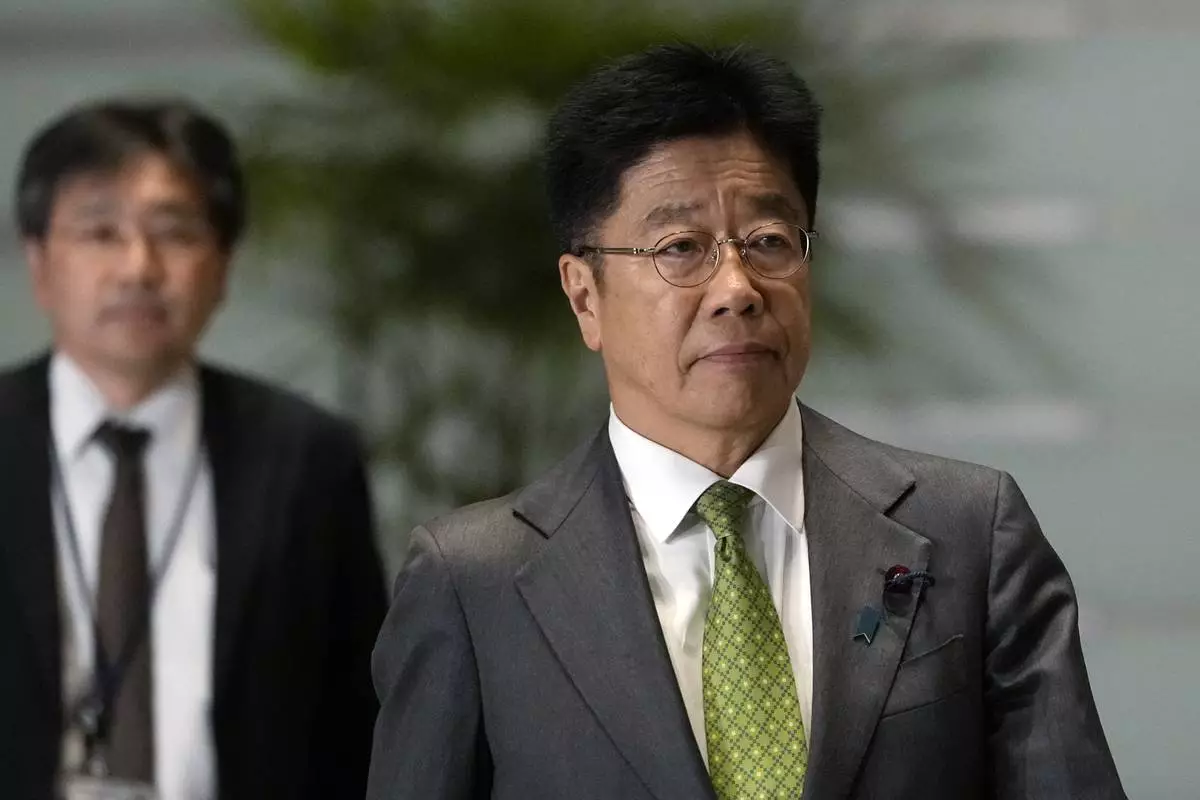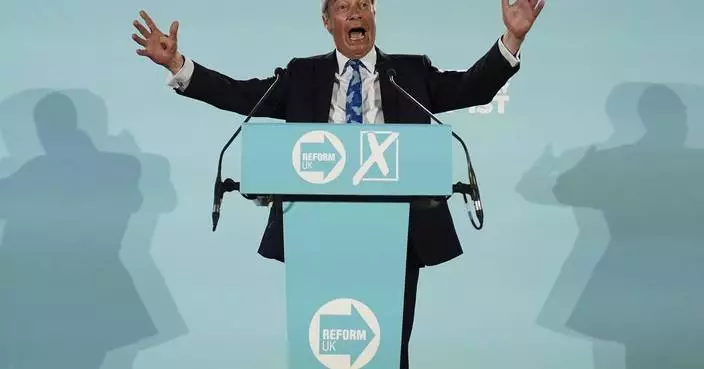LONDON (AP) — Inflation in the United Kingdom fell for the second month running in March largely as a result of lower prices at the pump, official figures showed Wednesday, a move that is likely to pile pressure on the Bank of England to cut interest rates next month.
The Office for National Statistics said consumer prices rose by 2.6% in the year to March, down from 2.8% the previous month. The decline was bigger than anticipated, with most economists predicting a more modest decline to 2.7%.
However, inflation remains above the Bank of England's target of 2% and is set to rise to over 3% in April due to a confluence of factors, including higher domestic energy bills as well as the potential impact of higher taxes and labor costs for businesses, which are likely to pass some costs on to customers.
Still, most economists think the bank can lower its main interest rate from 4.50%, as the peak in inflation is likely to be lower than previously thought, not least because U.S. President Donald Trump's tariff policies are likely to depress global growth and hence prices. One impact of Trump's tariff plans has been lower oil prices, which will have a downward effect on inflation.
“An interest rate cut in May looks increasingly nailed on, and the path to more easing in the second half of the year is getting clearer,” said Luke Bartholomew, deputy chief economist at asset management firm Aberdeen.
Inflation is way down from levels seen a couple of years ago, partly because central banks have dramatically increased borrowing costs from near zero during the coronavirus pandemic. Prices then began to shoot up, first as a result of supply chain issues and later because of Russia’s full-scale invasion of Ukraine, which pushed energy costs higher.
As inflation rates have declined from multidecade highs, central banks, including the U.S. Federal Reserve have started cutting interest rates, though few, if any, economists think that rates will fall back to the super-low levels that persisted in the years after the global financial crisis of 2008-2009 and during the pandemic.
The Bank of England has lowered its main rate from a 16-year high of 5.25% by a quarter of a percentage on three occasions since last August, most recently in February,
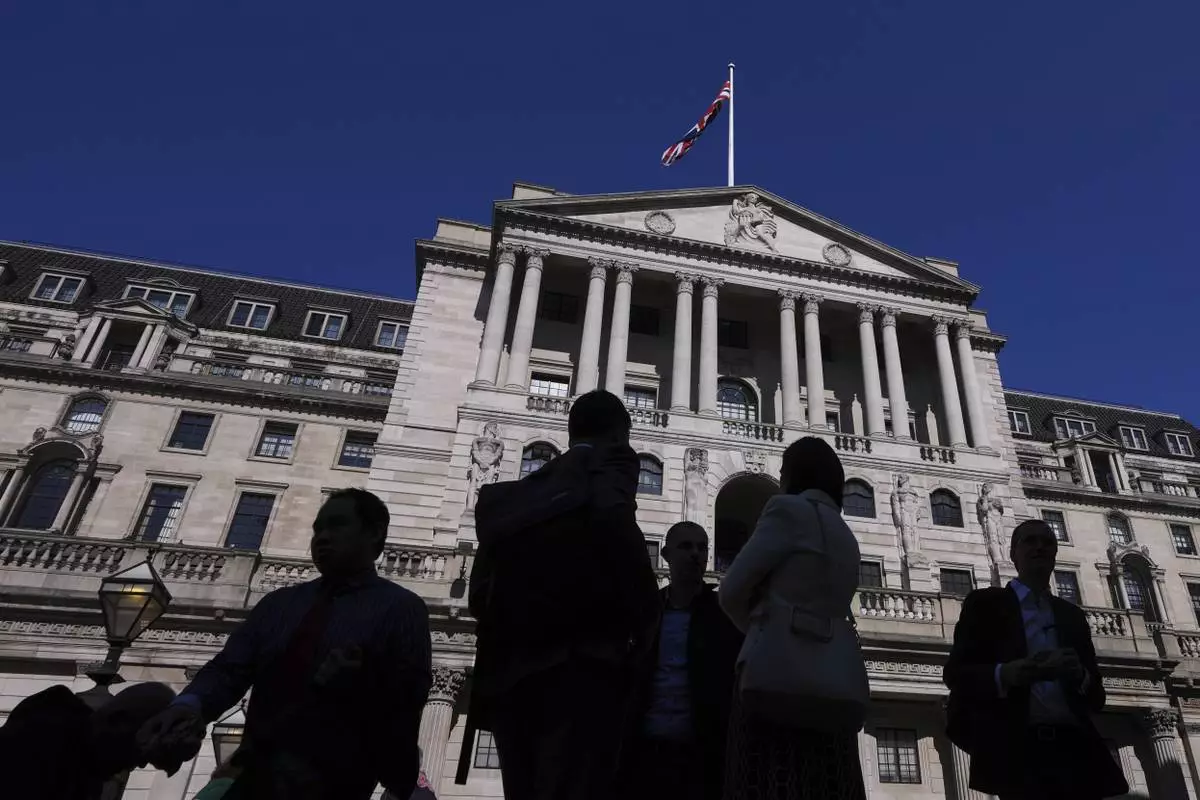
FILE - People are silhouetted as they pass The Bank of England in London, Thursday, April 3, 2025. (AP Photo/Kirsty Wigglesworth, File)
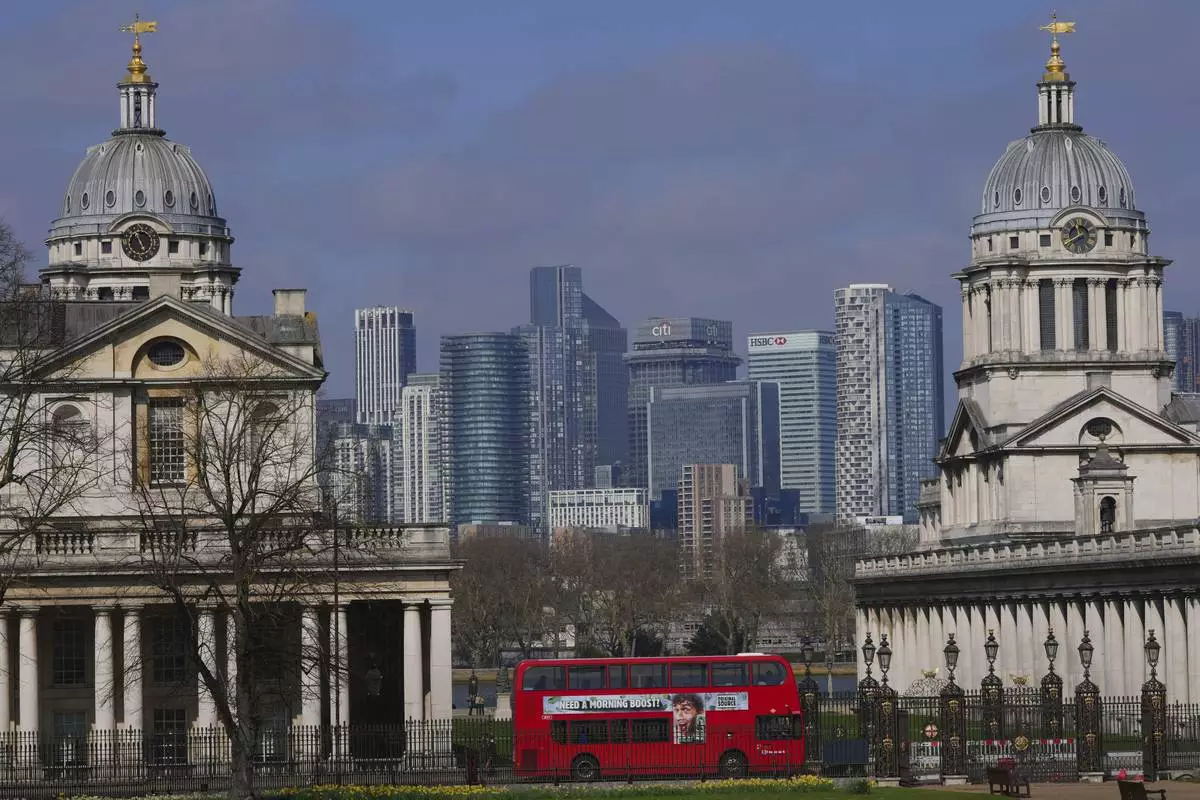
FILE - The Old Royal Naval College in Greenwich frames buildings in London's financial area Canary Wharf, in London, Thursday, March 27, 2025. (AP Photo/Kirsty Wigglesworth, File)


